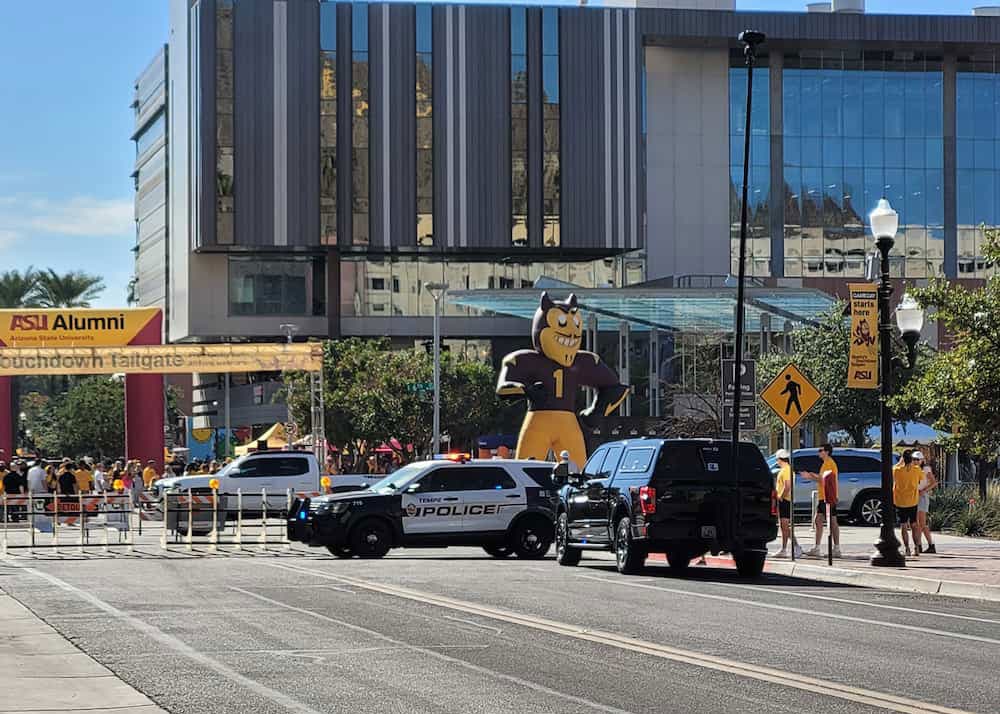Knoxville PD Boosts DUI Checkpoint Efficiency with Advanced RATT Technology
DUI checkpoints are a critical tool in the fight against impaired driving, serving as a deterrent and a method to actively remove intoxicated drivers from the road. Utilizing advanced technology can significantly enhance the effectiveness of these operations. In Knoxville, the local police department has taken innovative steps to upgrade their enforcement strategies at these checkpoints, ensuring safer roads for the community.
The Knoxville Police Department (KPD), in collaboration with the University of Tennessee Police Department, expanded its monitoring of a recent DUI checkpoint near UT campus by including two RATT systems for a complete overwatch of the area. KPD officers deployed their Hitch-Mounted RQ610 5-sensor Mobile Surveillance Tower and a second RATT portable light tower for increased visibility.
According to Sgt. Huskey, “The RATT system with the portable light tower greatly enhanced our officers’ ability to view drivers and provided another layer of safety, making officers more visible to the motorists. The RATT system with the camera provided us excellent views of the entire area and approaching motorists. Both systems are easily deployed and plug right into our vehicles for power.”
With two RATT systems at their disposal, officers strategically positioned both the camera and light systems to expand their range of vision over the area throughout the checkpoint’s operation. Officers examined 330 motorists for signs of impairment, leading to one DUI arrest and two other arrests.
Importance of DUI Checkpoints
DUI checkpoints play a vital role in maintaining road safety by preventing impaired driving, which is a significant cause of traffic accidents and fatalities. These checkpoints serve as a proactive measure to deter drivers from getting behind the wheel while under the influence of alcohol or drugs. By setting up these checkpoints at strategic locations and times, law enforcement agencies can efficiently screen drivers and identify those who pose a risk to themselves and others on the road.
The presence of DUI checkpoints also has a psychological effect on the community. Knowing that there are random sobriety checks can discourage individuals from driving after drinking, thereby reducing the overall incidence of impaired driving. This not only saves lives but also reduces the number of alcohol-related accidents, injuries, and property damage.
Moreover, DUI checkpoints provide an opportunity for law enforcement to engage with the community and raise awareness about the dangers of impaired driving. Officers can distribute educational materials and promote safe driving practices, reinforcing the message that driving under the influence is unacceptable and will not be tolerated.
In summary, DUI checkpoints are an essential component of road safety strategies. By combining traditional enforcement methods with advanced technology like the RATT systems, police departments can enhance the effectiveness of these checkpoints, ensuring a safer environment for all road users. The successful implementation of these checkpoints in Knoxville serves as a model for other communities looking to improve their traffic safety initiatives.















